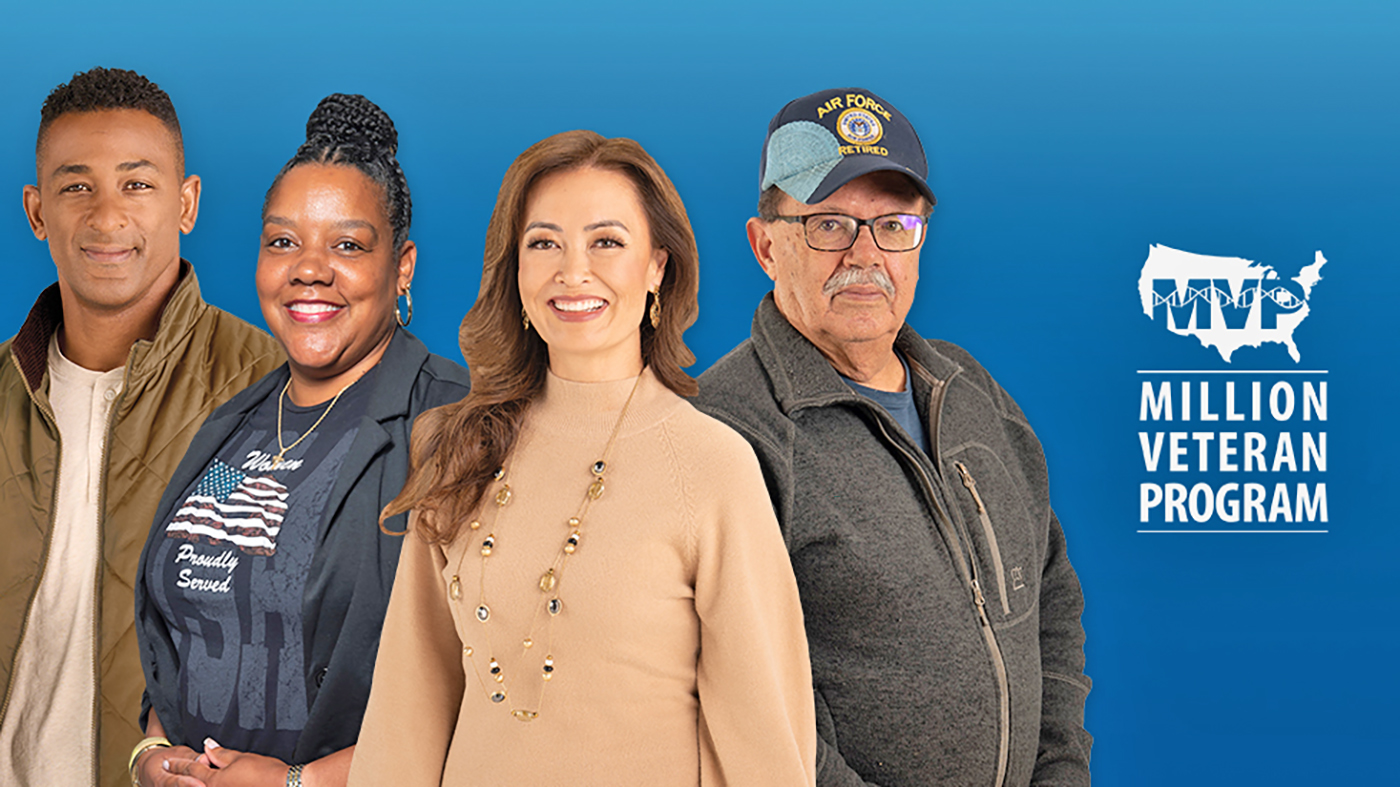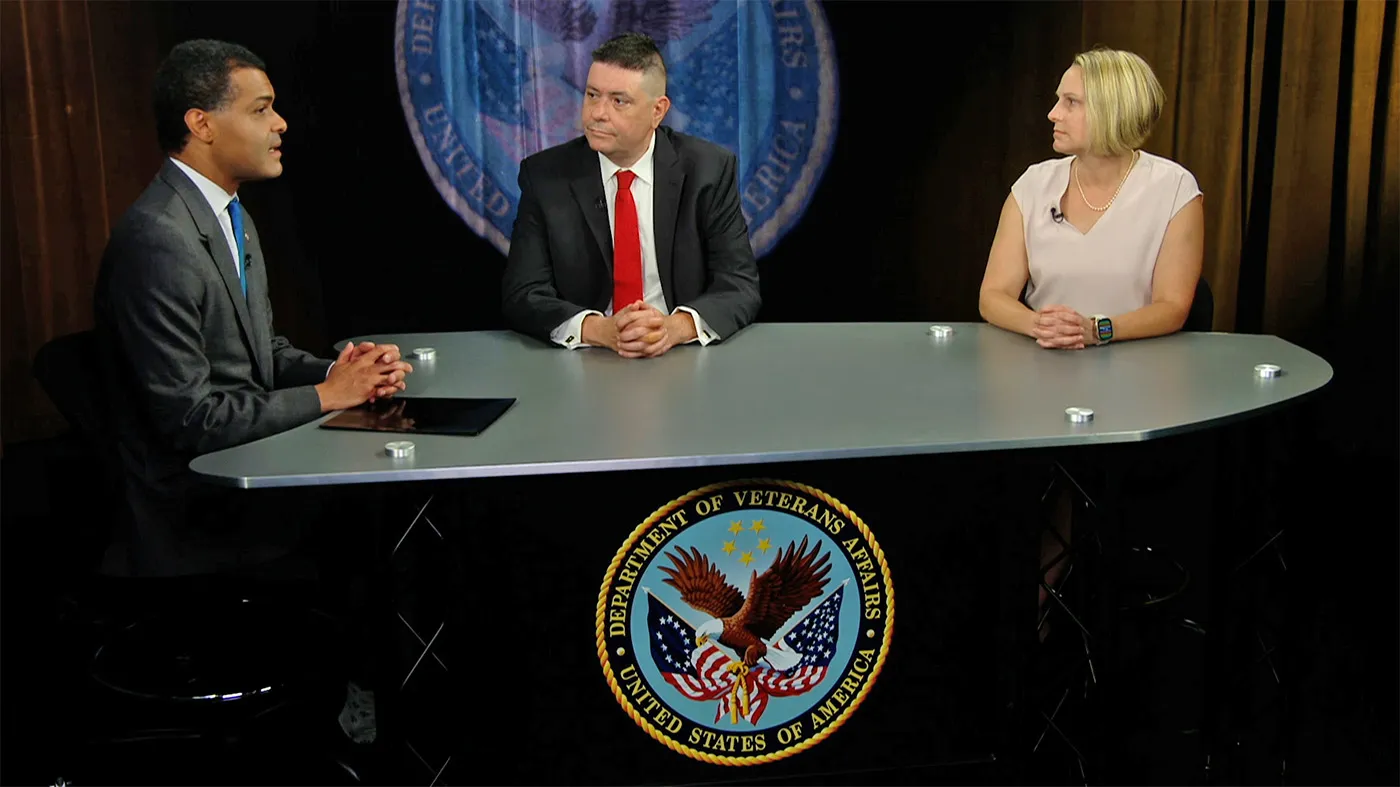Mindfulness cultivates the habit of being present in the here and now, not focusing too much on the past or future, and acknowledging thoughts without judging them or reacting to them. (Photo for illustrative purposes only. ©iStock/electravk)
The following is adapted from a longer article in VA Research Currents.
Mindfulness is a hot trend. But is it good medicine for Veterans and others with PTSD?
Researchers urge caution. They aren’t ready to just assume that mindfulness is safe and beneficial for everyone. A group of experts wrote last year:
“Much of the public news media has touted mindfulness as a panacea for what ails human kind, overlooking the very real potential for several different types of harm.”
They cited opinions, such as from the National Center for Complementary and Integrative Health, that vulnerable patients—those with serious mental health conditions in need of real treatment—could be misled and expect more healing from mindfulness than it can actually deliver. They even cited reports in the medical literature—albeit a very limited number—of patients’ mental state getting worse after meditation.
The same authors offered ideas for building more rigor and uniformity into clinical trials of mindfulness.
VA researchers have been answering that call. Most recently, they conducted a randomized, controlled trial of mindfulness in more than 200 Veterans with PTSD. The researchers used a well-known program called mindfulness-based stress reduction (MBSR). They compared it to a psychological treatment called present-centered therapy.
Here’s how the researchers stated their findings: “Both MBSR and present-centered group therapy appear to have beneficial effects in treating PTSD in veterans, with greater improvement observed in self-reported PTSD symptoms among the MBSR group. No differences between the groups were observed on the CAPS-IV scale”—a clinician-administered questionnaire that rates PTSD symptoms.
In other words, the study didn’t find any dramatic advantage to MBSR over the control therapy. Both produced modest benefits.
The results were somewhat disappointing, compared with those from an earlier pilot study. In that smaller trial, MBSR outperformed present-centered group therapy for easing PTSD symptoms, even six months later.
Another VA trial also saw stronger results from MBSR than from present-centered group therapy, although there too the overall effects were “modest.”
To help sort out these results, VA Research Currents spoke with two of the investigators in the forefront of studying mindfulness in VA.
Dr. Lori Davis is the associate chief of staff for research at the VA Medical Center in Tuscaloosa, Alabama. She’s also a professor at the University of Alabama Health System in both Tuscaloosa and Birmingham. Dr. J. Douglas Bremner is the director of mental health research at the Atlanta VA Medical Center, and a professor at the Emory Clinical Neuroscience Research Unit at Emory University School of Medicine.
Tell us a little about the format of MBSR in your studies.
LD: There are eight 90-minute to two-hour sessions and a half-day retreat in the curriculum. Each session builds upon the previous one, so it’s important that people make a commitment to start and finish and go through the eight weeks.
The first session is an orientation. Then we get into some simple yoga to begin to focus the mind and body. There are exercises on mindful eating—for example, sampling fruit while being aware of the body and its sensations.
The Veterans learn how to do abdominal breathing with some guided breathing, focusing on the breath. There’s also the body scan practice. These are deep relaxation techniques that may overlap with other types of relaxation therapy.
Each session is followed by a homework practice. That’s also very important. Usually, an audio recording of guided meditation is given so that the Veteran can practice at home, keeping a journal. There is a period during each session when homework is discussed and shared within the group.
Given the available treatments for PTSD, like psychotherapy or medication, why would Veterans need mindfulness?
JDB: Medications can have side effects. Many people don’t want to take medication, especially for psychiatric conditions. And psychotherapy may involve exposure to memories of traumatic events, and part of PTSD is avoidance. MBSR represents a way that they can get access to treatment without having to plow through old memories and without having to take medication.
There’s also a spiritual element that people bring away from the training that I think is valuable and that is not easy to quantitate.
LD: About a third of Veterans who are recovering from posttraumatic stress discontinue a medicine or evidence-based psychotherapy prematurely because of difficulty tolerating those treatments. However, I want to emphasize that mindfulness is never intended to replace these evidence-based treatments. They are complementary and integrative health approaches. They are meant to augment or facilitate a person’s recovery in combination with evidence-based treatment. We also think that many people who previously were not able to tolerate cognitive behavioral or prolonged exposure-type therapies are able to go back to them, tolerate them better, and see more success with them, once they go through the eight-week course in mindfulness.
How do you explain the mixed study findings?
LD: The studies so far that have had shown more positive effects from mindfulness were single-site studies. Those tend to “behave” better because you have more homogeneity. You tend to have only one or two therapists, usually the same therapists throughout the whole study, so, you have less variability in how the treatment is delivered. Our recent study involved three sites. Over the course of the study, we had at least six different mindfulness therapists, two at each site, and so that adds to the variability.
We were also in a rural area … so we might have had some cultural differences that affected how well the intervention was accepted.
JDB: I will note that we seem to get better results on self-reported symptoms than on the clinician-administered assessment. My interpretation is that people do feel like they’re getting a benefit, or they actually feel better, even if it’s not reflected on the CAPS. Ultimately, what we want to do is help our patients feel better and have a better quality of life.
The other thing is that the pilot study involved Iraq Veterans who had severe PTSD and were within one year of returning from deployment. They had early PTSD. They’re more amenable, I think, to intervention. They may have had more severe symptoms, so it’s easier to show an effect from the intervention. But overall, I look at the entire literature. There’s no study that shows mindfulness doesn’t have any benefit at all.
Given the literature to date, should mindfulness be part of clinicians’ toolboxes for treating PTSD?
JDB: I would say that mindfulness-based stress reduction is another tool that VA clinicians can use. I think that there’s a place for mindfulness classes that are associated with VA mental health clinics. Some Veterans are attracted to the concepts and they can learn things they can use in their daily life, and the side effects are minimal. We had some concerns about doing mindfulness in Veterans—maybe people wouldn’t grasp the concept, or they might dissociate. But we haven’t had any real negative effects. So, I think it should be made available for Veterans who choose to attend.
LD: I agree. The limitation is that not all VAs are offering mindfulness groups, so it may not be immediately available in all of the community-based clinics, especially in rural areas. I would like to point out that there is a Mindfulness Coach app that’s available on the National Center for PTSD website. It has nine guided audio sessions, self-guided versions. So Veterans can be introduced to mindfulness until they can find a group to participate in face-to-face.
Are there groups outside VA that Veterans can take advantage of?
LD: Absolutely, and the cost is usually very low. Sometimes classes are offered for free at community centers. I think it’s very much worth looking around the community for groups that are using mindfulness meditation.
Are there any resources you can offer VA clinicians who would like to learn more?
LD: During this research, we developed a manual. It’s very hard to get your hands on a good eight-week manual. If any VA clinicians want to get in touch with us, we will share our eight-week manual that gives session-by-session guidance. It’s customized for Veterans as well as for PTSD. Most previous manuals were more generic. We consulted with many experts to help customize it.
JDB: Mindfulness may not be a cure for PTSD, but this is a chronic condition, and the more tools we can give Veterans to help them in their day-to-day life, especially to avoid violent outbursts, the better.
Read the full article in VA Research Currents.
Topics in this story
More Stories
Diverse representation of women in health care research allows MVP to make discoveries for women’s health
Join the Million Veteran Program online. You will have the option to receive an at-home blood sample collection kit in the mail.
VHA's new podcast series, New Horizons in Health, features a candid discussion of psychedelic assisted therapies for Veterans experiencing mental health conditions.






